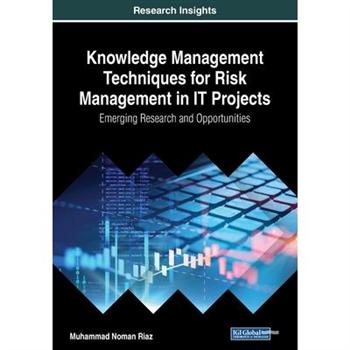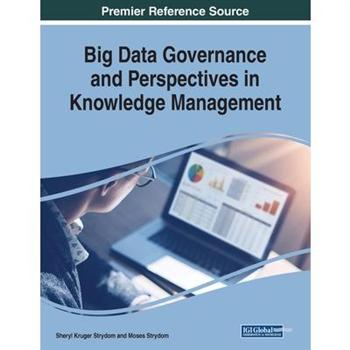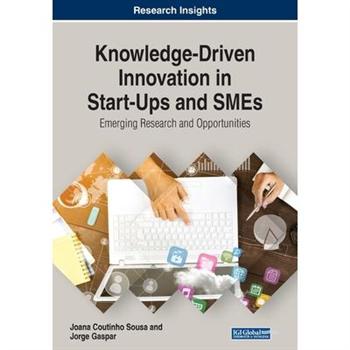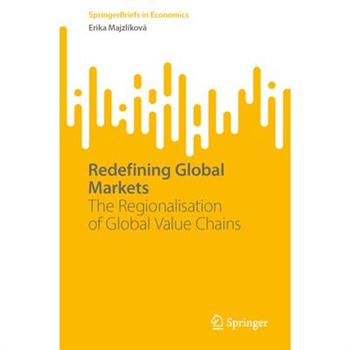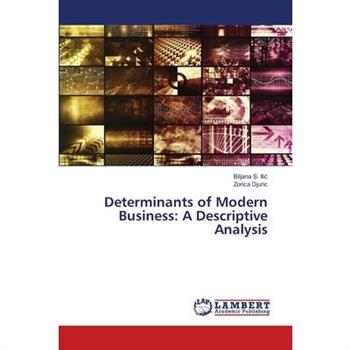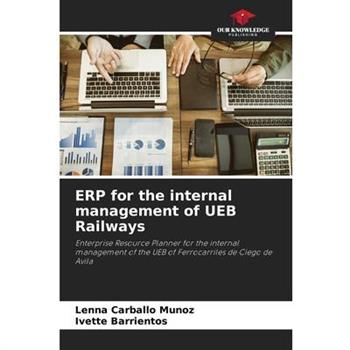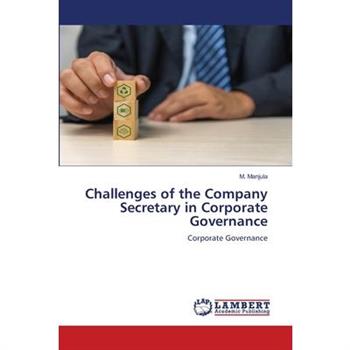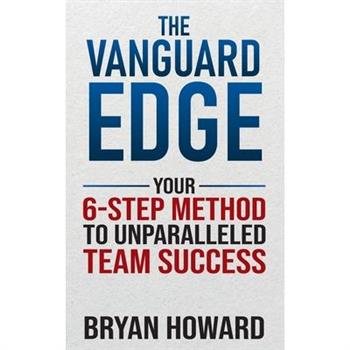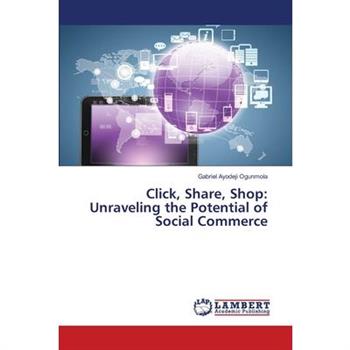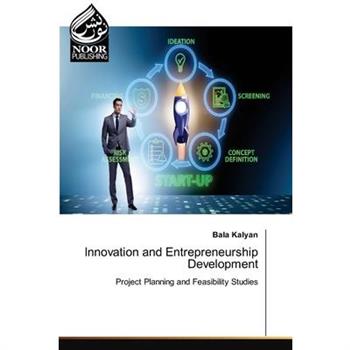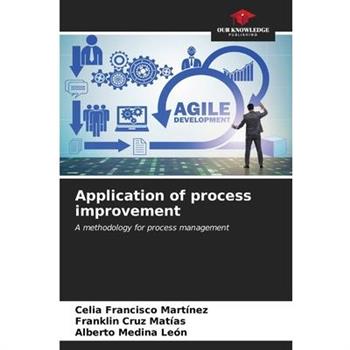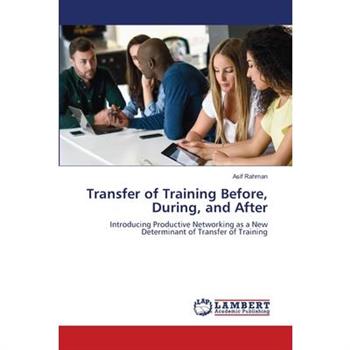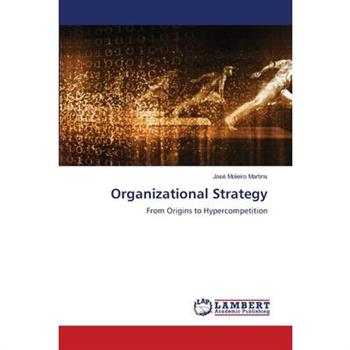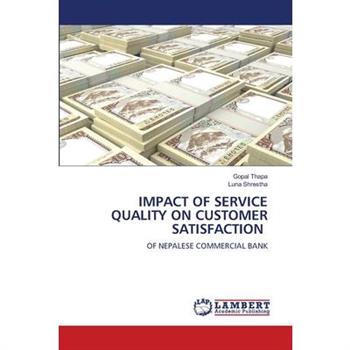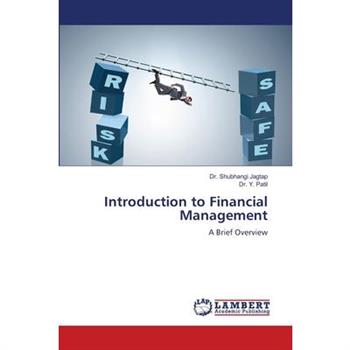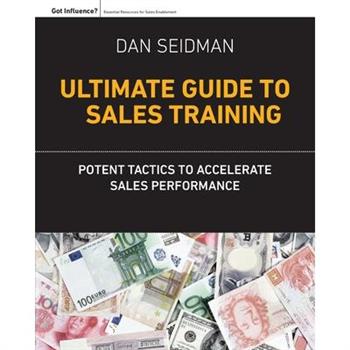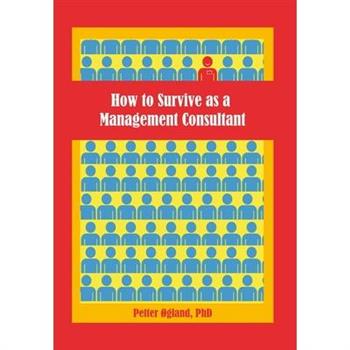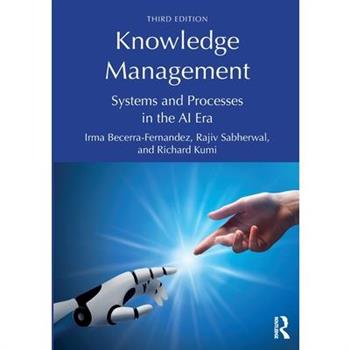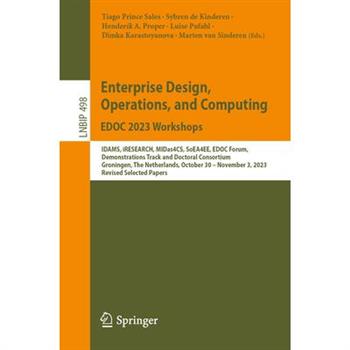Co-Manufacturing and New Economic Paradigms
Workspaces and their design have a vast impact on the comfort and productivity of employees. Therefore, the structure of a workspace can be used to determine the socio-economic characteristics and elements that will appear in the employees that utilize them. Co-Manufacturing and New Economic Paradigms provides innovative insights into shared workspaces as independent socio-economic environments. The content within this publication explores the ideas of knowledge sharing, work culture, and economic planning. It is a vital reference source for entrepreneurs, business professionals, and researchers, and it covers topics centered on the importance of workspace design and organization.
Knowledge Management Techniques for Risk Management in IT Projects
There are many risks associated with IT projects that have the potential to threaten the success of the project at any stage of its development life cycle. By seeking commonalities between knowledge management and risk management, a way by which they can be integrated together to reduce these risks can be determined. Knowledge Management Techniques for Risk Management in IT Projects: Emerging Research and Opportunities is a collection of innovative research that examines the tools and techniques of knowledge management and integrates them with risk management techniques for better analysis of risks that can occur in different stages of IT projects. While highlighting topics including benchmark monitoring, integration management, and knowledge banks, this book is ideally designed for project managers, risk consultants, managers, industry professionals, researchers, and academicians.
Corporate Social Responsibility and the Inclusivity of Women in the Mining Industry
The importance of corporate social responsibility with a focus on gender diversity has been widely debated in modern businesses. Of specific issue is the importance of gender diversity and its impact on the mining industry including the communities in which they are established. Corporate Social Responsibility and the Inclusivity of Women in the Mining Industry: Emerging Research and Opportunities is a pivotal reference source that explores how multinational mining corporations influence the life of women in international mining communities. While highlighting topics such as corporate social responsibilities, socioeconomics, and management systems, this publication is ideally designed for industry professionals, engineers, managers, policymakers, academicians, and researchers.
Big Data Governance and Perspectives in Knowledge Management
The world is witnessing the growth of a global movement facilitated by technology and social media. Fueled by information, this movement contains enormous potential to create more accountable, efficient, responsive, and effective governments and businesses, as well as spurring economic growth. Big Data Governance and Perspectives in Knowledge Management is a collection of innovative research on the methods and applications of applying robust processes around data, and aligning organizations and skillsets around those processes. Highlighting a range of topics including data analytics, prediction analysis, and software development, this book is ideally designed for academicians, researchers, information science professionals, software developers, computer engineers, graduate-level computer science students, policymakers, and managers seeking current research on the convergence of big data and information governance as two major trends in information management.
Knowledge-Driven Innovation in Start-Ups and SMEs
The world is witnessing an increase in innovation both in start-ups and in SMEs, and the implementation of innovation is having a substantial impact on the knowledge of the economy. The ability of human beings to create new knowledge can be defined as a basic skill in a global economy, which involves learning as an essential dynamism of the competition. Following this and considering the need for developing standards and guidelines for innovation, organizations have been working on developing and updating a set of documents to help the innovators and the innovative companies work better. Knowledge-Driven Innovation in Start-Ups and SMEs: Emerging Research and Opportunities is a collection of innovative research on the methods and applications of standardization and guideline creation in business innovation, such as those implemented by the Organisation for Economic Co-operation and Development (OECD). While highlighting topics including business analysis, market research, and intellectual property, this book is ideally designed for market researchers, business professionals, academicians, and students seeking current research on innovative processes and approaches for organizations.
Redefining Global Markets
This book analyses the possible regionalization of global value chains, particularly in manufacturing. Amidst calls for an industrial renaissance in Europe and a resurgence of manufacturing jobs in the United States, the dynamics of global value chains have been reshaped by global pandemics, geopolitical tensions, and increased automation. Employing a multi-regional input-output model, the book scrutinizes the decline in offshoring afer the mid-2010s. It sheds light on regionalization as a pivotal force redefining global markets, and focuses on Europe and North America, revealing the strengthening of regional ties. Discussing future challenges, the book will appeal to scholars, students, and researchers, as well as practitioners and policy-makers interested in a better understanding of (de)globalization nuances connected to the evolving role of manufacturing in global value chains.
Climate Disaster Preparedness
As a result of global warming, extreme events, such as firestorms and flash floods, pose increasingly unpredictable and uncertain existential threats, taking lives, destroying communities, and wreaking havoc on habitats. Current aesthetic, technological and scientific frameworks struggle to imagine, visualise and rehearse human interactions with these events, hampering the development of proactive foresight, readiness and response.This open access book demonstrates how the latest advances in creative arts, intelligent systems and climate science can be integrated and leveraged to transform the visualisation of extreme event scenarios. It reframes current practice from passive perception of pre-scripted illustrations to active immersion in evolving life-like interactive scenarios that are geo-located. Drawing on the multidisciplinary expertise of leaders in the creative arts, climate sciences, environmental engineering, and intelligent systems, this book examines the waysin which climate disaster preparedness can be reformulated through practices that address dynamic and unforeseen interactions between climate and human life worlds. Grouped into four sections (picturing, narrating, rehearsing, and communicating), this book maps this approach by exploring the emerging strengths and current limitations of each discipline in addressing the challenge of envisioning the unpredictable interaction of extreme events with human populations and environments. This book provides a timely intervention into the global discourse on how art, culture and technology can address climate disaster resilience. It appeals to readers from multiple fields, offering academic, industry and community audiences novel insights into a profound gap in the current knowledge, policy and action landscape.
The Reshaping of China's Industry Chains
This open access book offers a comprehensive analysis of the opportunities and challenges facing the development of China's industry chains in a changing landscape. As the trend of deglobalization is intensifying, the global supply chain has suffered from external shocks, prompting both the private and public sectors to reflect on the stability of the supply chain. As such, governments are putting greater emphasis on the resilience and "security" of industry chains. How will the changing circumstances across the globe affect China's industry chains? This book suggests that amidst the trend of deglobalization, it is important for China to leverage its advantages in economies of scale to improve both the efficiency and security of industry chains. By examining the current state of global trends, international trade, and industrial policies, the book outlines potential pathways of the development of global supply chains, and provides insights on the challenges and opportunities for China. This book also focuses on strategically important sectors in the digital, green, logistics, and manufacturing industries, presenting an in-depth discussion of the prospects of each industry chain. Being both readable and academically rigorous, this book is well-suited for readers from in the fields of public policy, economics, finance, and for those who seek to better understand the reshaping of China's industry chains. The work cites information from various sources, including academic journals, policy institutions, and a network of primary sources such as industry experts and renowned academics.
A Software Framework for Mobile Apps in the Museum Application Domain
This book is concerned with "How to provide guidance for small cultural heritage institutions to govern digital transformation, and how to align the possibilities with the available capabilities by creating a Software Framework for Mobile Apps in the Museum Application Domain?". The role of the museum has shifted from a keeper of artifacts to a provider of information. In this context mobile applications are intended to generate added value for the museum visitor. However, the tension between the application's creator, its content, and the consumer operating the app needs to be examined holistically. As it is not trivial to create an integrated user experience, the unique usability-centered perspective on the requirements engineering pursued throughout, allows for the suggested data-driven solution to address the specific domain issues and serve the intended audience. Based on the insights gained during this examination and under the utilization of design science research, human-centered design, and domain-driven design "A Software Framework for Mobile Apps in the Museum Application Domain" is created and implemented using web technologies.
Supply Chain Finance
As global supply chains become more complex, the need for expertise in their financial aspects grows. This book aims to equip students and professionals with the knowledge to navigate these complexities, ensuring efficient and resilient financial supply chain operations. It provides an in-depth exploration into the intricate and constantly evolving realm of supply chain finance. By merging key concepts, major mechanisms, hands-on risk analytics, and the latest technology trends, this book offers a seamless and comprehensive examination of the topic, grounded in the author's twenty years of academic research and hands-on experience. Students in supply chain management will gain a thorough understanding of the financial elements that are integral to modern supply chains, including the importance of liquidity, the role of financial institutions, and the optimization of cash flows within the supply chain ecosystem. Definitions will be used throughout the text to elucidate financial terminology that may be unfamiliar to management students. The instructor's manual will include PowerPoint slides, exercises, and quizzes to assess student comprehension and progress. This textbook will serve as the primary resource for understanding the financial dimensions of supply chains.
Determinants of Modern Business
The book includes compiled writings from multiple editions or chapters from various publications that collectively relate to contemporary business practices. Considering the authors' expertise, this book offers management strategies and covers institutions crucial to the state, including political figures, healthcare providers, pension funds, and educational institutions. The author aimed to consolidate all the most significant papers on a particular subject in one place.
ERP for the internal management of UEB Railways
This research arises from the immediate need to organize and have a strict control of all the important information handled in the Unidad Empresarial de Base de Ferrocarriles de Ciego de Avila (UEB FCA) located in the municipality of Mor籀n, with the objective of improving the management of the information related to the internal control of this company, which is of vital importance for it to raise the efficiency and quality of its services. Today, the Cuban economic model is being updated, which has brought with it a process of business improvement, specifically in the transportation branch, in order to improve its main processes and work flows. The processes of contracting, control of electricity consumption, control of magnetic cards, payment of per diem per trip, control of fuel and rail traffic, are the main axis for the proper functioning of the entity, so it is desired to achieve better management and greater control over them by the managers.
Challenges of the Company Secretary in Corporate Governance
A Company Secretary also known as a Compliance Officer is a senior position in a sector establishment and one of the positions, which is a part of the Key Managerial Personnel (KMP) of a company which includes the Board of Directors. Company Secretary is named as a Corporate Secretary in a publicly listed corporation. The responsibility of efficient administration of a company, particularly regarding ensuring of compliance with statutory and regulatory requirement and for ensuring that decisions of the Board of Directors, lies in the hands of a Company Secretary. The highest level in an organisation is the Managerial Level, where a Company Secretary is assigned for the same to ensure that the business complies with all the legal requirements and the company's smooth operation.The Companies Act, 2013 states the compulsory appointment of a Company Secretary for the companies with the paid-up capital of ₹ 5 crores and more. Company Secretaries facilitates the CEO, Non- Executive Directors and other crucial areas using their comprehensive and practically learned skill set in Corporate Secretarial Practice, Finance, Corporate Governance and Law.
The Vanguard Edge
Dive into The Vanguard Edge and discover Bryan Howard's groundbreaking approach to team development. This book is a treasure trove of insights and strategies, designed to transform the way teams operate and excel.Within this book, you'll discover: How to cultivate a growth-oriented mindset that forms the foundation of a high-performing team.Strategies for defining a clear and compelling team mission that aligns with your goals.Techniques to structure your team for maximum efficiency, fostering innovation and adaptability.The art of crafting and communicating a powerful team message that resonates and inspires.Methods to measure and enhance team performance, turning metrics into a roadmap for success.The Vanguard Edge is more than just a book; it's a guide to achieving operational excellence and team synergy. With each chapter, you'll gain access to transformative concepts and practices that will elevate your team's performance.Embark on a journey of team transformation with The Vanguard Edge. Secure your copy today and start building a team that not only meets but exceeds expectations!
Click, Share, Shop
"Social Commerce: The Future of Online Shopping" is a comprehensive guide that explores the latest trends and developments in social commerce. The book is designed to provide insights and strategies for businesses that want to harness the power of social media to drive sales and engagement. The book starts by providing an overview of social commerce and its evolution, including the rise of social media platforms as a key driver of e-commerce growth. It then delves into the strategies and tactics that businesses can use to effectively leverage social media to reach and engage customers. This includes the use of social media advertising, influencer marketing, and other emerging social commerce trends. Throughout the book, readers will learn about best practices, case studies, and practical tips from industry experts on how to create effective social commerce strategies. The book also includes a detailed analysis of the most popular social media platforms, including Facebook, Instagram, TikTok, and Pinterest, and how they can be used for social commerce. In addition, the book discusses the importance of creating a seamless user experience, the role of customer reviews and ratings.
Consumer Purchase in Fashion Industry Using Augmented Reality
AR is a technologically-delivered, improved representation of the real world that incorporates digital visuals, audio, and other senses. The fashion industry is using augmented reality (AR) more and more to improve the shopping experience for customers. It acts as a link between the virtual and real worlds of shopping, enabling customers to digitally try on apparel and accessories prior to making a purchase. The potential of AR contributes to the increasing emphasis in design on improving ergonomics and user interfaces. Products are progressively differentiating themselves based on how well they provide consumers with crucial operational and safety information. AR is changing the way that people think about showrooms and product demos, as well as the way they interact with customers. Customers have higher levels of satisfaction with their purchases, more accurate expectations, and increased confidence in their purchasing decisions when they can virtually preview how things will appear or perform in a real-world situation before making a purchase. In the future, augmented reality might potentially completely replace the need for showrooms and physical storefronts.
Innovation and Entrepreneurship Development
Innovation is not limited to technological advancements and encompasses novel approaches to problem-solving, processes, organizational practices, or business model innovations. Entrepreneurship is based on purposeful and systematic innovation. It included not only independent business people but also company directors and managers who actually carry out innovative functions. The book innovation and entrepreneurship development cover the basic concepts of being an entrepreneur and establishing an entrepreneur venture. The objective of the manuscript is to make students understand the nature of entrepreneurship, and change energy for students to take unexplored career paths.
Application of process improvement
The application of a process management procedure is presented in the company Agricultural Implements "El Tim籀n", located in the municipality of Tempoal, Veracruz, Mexico, who through distributors such as New Holland, John Deere and Massey Ferguson position the products to the end customer (agricultural and livestock companies). Work is carried out on the selection of processes for improvement based on their definition and representation on a map. The representation, diagnosis and improvement of the selected production process is proposed through the "Diana" process, its respective process sheet, As-Is diagram and indicators. Finally, the main actions to be taken to improve the production process are proposed.
Labor Induction
A research was carried out in 5-star hotels in the city of Santiago, in order to know how the labor induction, orientation process for newly incorporated workers, is seen from the perspective of management and workers. The research is descriptive, using a mixed approach and convenience sampling, interviewing management and applying a questionnaire to workers. The results indicate that induction is considered important, it is done in a short period of time during the initial performance of the worker and is in charge of the human resources department and the immediate supervisor. Those who received induction obtained better work performance and belonging to the organization, in agreement with management's perspective. In two hotels, 40% of their workers said that they had not received an induction.In conclusion, induction improves productivity and aligns workers' performance with business strategies.
Co-creation to Accelerate SDG with ESG/ IEP/ i5
Through collaborative projects with Dr. Shirley Yeung, such as Inspiring Girls HK, HopeNFT, SDG X Green Fundraising Project, NFT Investment and Venture, I have revisited the use of visuals that resonate with girls' interests and experiences through a co-creation approach. This book delves into chapters on co-creation with entrepreneurs from diverse backgrounds to accelerate SDGs, such as the COP28 Project "Restore the Nature with Innovations," which I have had the opportunity to witness virtually. I am deeply inspired by Dr. Yeung to establish a sustainable lifestyle aligned with the SDGs, characterised by self-management, a focus on passion-driven action, and a commitment to serving the community through responsible business.Lucie PetitFounder, HK MODEL CAMP
Transfer of Training Before, During, and After
It was the conclusion of the study that in addition to trainee characteristics and contextual factors, productive networking among trainees before, during and after training was a critical factor in the successful transfer of training in the studied organizations. Therefore, introducing productive networking as a fourth determinant of transfer of training in addition to knowledge, skills, and attitudes.
Real Keys to Landlord Success
In a world where the stakes are high and the challenges are many, "Unlock Your Keys to Success: A Guide to Stress-Free Landlording" emerges as the ultimate guidebook for the aspiring or seasoned landlord. Imagine a journey through the labyrinth of property management, where each turn unveils secrets to mastering the rental market. From the bustle of tenant selection right through lease signing this book guides you with the wisdom of a seasoned expert. Witness the transformation from a mere property owner to a savvy landlord, as our guide delves into the art of building harmonious tenant relationships and the science of efficient property maintenance. Brace yourself as you face the dragons of tenant disputes and financial woes, armed with the shield of diplomacy and the sword of strategic planning. Be amazed as the book reveals the latest technological advancements, turning mundane management tasks into a symphony of efficiency. "Unlock Your Keys to Success" is not just a book; it's a journey to the heart of being a successful landlord, a beacon of light in the fog of property management challenges. The key to unlocking your potential as a landlord and achieving success without the stress. Are you ready to turn the page?
Technology Is Dead
How did we end up here, masters of scientific insight, purveyors of ever more powerful technologies, astride the burning planet that created us, and now responsible for cleaning up the mess and determining the future direction of all of life? And what do we do about it?Technology is Dead is a book that attempts to answer both of those questions. It is a book of both challenge and hope, written for those who are able or willing to lead us out of our global predicament. It is a book for everybody: the politicians, CEOs, community leaders, everyday parents, and young people who understand that we must change our ways to ensure a sustainable future for all living things and the planet we rely on.
Globalisation of the accountant and transformational leadership
The theme developed focuses on the globalisation of the accountant and transformational leadership, showing the importance of this and its evolution over the years. To understand the importance of transformational leadership in the field of accounting, we start from the concept of leadership from different authors in different fields and areas, which highlights the entrepreneurial vision and teamwork to make solvent and recognised companies. It also seeks to raise awareness of the public accounting professional who not only performs his or her own work, but also generates warm working environments where everyone cooperates and feels motivated to achieve both personal and group goals.
Technology Is Dead
How did we end up here, masters of scientific insight, purveyors of ever more powerful technologies, astride the burning planet that created us, and now responsible for cleaning up the mess and determining the future direction of all of life? And what do we do about it?Technology is Dead is a book that attempts to answer both of those questions. It is a book of both challenge and hope, written for those who are able or willing to lead us out of our global predicament. It is a book for everybody: the politicians, CEOs, community leaders, everyday parents, and young people who understand that we must change our ways to ensure a sustainable future for all living things and the planet we rely on.
Corporate Governance
For companies that decline the presence of Good Corporate Governance (GCG), the duality figure limits the control of the board of directors focused on the actions of the company's CEO. This situation generates control inefficiency, limiting the possibility of implementing intervention tools by the CEO. In this sense, being the same person who performs the functions of Chairman of the Board and CEO, the presence of control is diminished, making it impossible to obtain the optimal results required by the shareholders. The CEO-Chairman duality is not optimal when it comes to maximizing shareholder wealth, since in these cases control over the CEO's actions is put at risk. Therefore, control over the CEO's decisions is one of the main responsibilities of the chairman of the board. Consequently, under a duality scenario, the CEO's actions can be influenced, leading to high agency costs (Jensen & Meckling, 1976).
Value creation in products
Currently, the Traceability System shows serious drawbacks in the inventory stages (starting with the sales force, logistics and dispatch). The lack of logistics control makes the company's operations and communication with the different divisions complex, causing bottlenecks in the processes. The need has arisen to optimize the value chain processes through traceability. The implementation of a traceability system in a company is the first step, since it allows tracking throughout the process and in case of a claim, it could be done in an effective and clear way, reaching the source and avoiding the same problem to reappear.
Compiling a winning business plan for a church
The book is about components of the winning business plan. Today's business world demands that even churches, NGOs and Faith Based Organisation must be bankable and be based on sound business principles. Unless these structures are founded and operated within the principles of business, they will not survive. For the church to strive and survive the storm, the institutions must be founded on a proper foundation and principles. The church must have a constitution and business plans to expand their growth and development. This book narrates the case of the Fountain Family Bible Church, how this ministry was born and travailed through leaps and bounds. In-spite of the challenges encountered on the way, the Lord has been good.
Costs and Budgets
The different ways to keep a cost control starts with the identification of the elements of cost and then proceed to develop a structure, considering traditional costs and modern costs that are accompanied by technology and systems appropriate to the purposes and objectives of a company, taking into account the different activities in which these are developed.
DIGEST Volume 2
This book is a series of research presented in different national and international forums. This second volume is the result of the activities carried out by the Academic Body of the Faculty, and credit is given to the Autonomous University of Coahuila, an institution of higher education as a recognition to this maximum house of studies in the State of Coahuila. The teachers are authors, editors and designers of this academic production, which will be used to promote and disseminate knowledge.
Production and export of agro-industrial products (Fruit Pulp)
Due to the accelerated life and with little time available, nowadays products that are easy to prepare and with little time of dedication are very popular. Additionally, the consumption of fruit pulp is preferred to normal fruit due to the difficulty of handling and high level of waste of fruits such as: blackberry, soursop and coconut, guava, strawberry, naranjilla, passion fruit, pineapple, pitajaya, among others. The frozen fruit pulp market in Ecuador has been growing in the last five years; however, none of these companies has an established marketing plan and does not promote its product, so it sells what is sold on impulse and does not motivate the purchase. According to the market research conducted, there is a 48.80% of unsatisfied demand within our target market; in other words, there is a great opportunity for growth. The option to grow in sales and make the company more productive and profitable is to allocate an annual value to the marketing budget, plus an additional item for the increase of people as sales force; the results can be seen in the profit and loss statement projected to five years.
Emotional intelligence
The world is constantly changing and organizations need Human Resources capable of adapting and creating differentiating advantages. The aim of this study is to investigate and establish the relationship between emotional intelligence and a number of variables in the work context of Certified Accountants, including individual performance evaluation (self-perceived performance), work experience and the established working relationship. The research was carried out using a quantitative methodological approach. To this end, a questionnaire survey was carried out using the trait model, more specifically the self-report scale of Schutte et al. (1998). The sample was made up of 142 Certified Accountants aged between 20 and 70. The results show an increase in emotional intelligence proportional to years of experience in the profession, as well as a positive relationship between emotional intelligence (total and factors) and self-perceived performance at work. There appear to be no discrepancies between the emotional intelligence of self-employed workers (entrepreneurs) and employees.
Effects of a Management Model on the honey value chain
The key point of the Management Model for the Sandoval Beekeeping Microenterprise is the Associativity with farmers in the area, in order to improve the value chain of APISAN honey bee honey. The qualitative theoretical methodology proposed by Hern獺ndez Sampieri and Fern獺ndez (2010) was used in the design, starting with a problem and defining in the research design the components of the CANVAS Management Model for the Structuring of the Value Chain. The method used was the diagnosis of the level of intervention of Potential Distributors and Public Institutions that promote the beekeeping activity in Ecuador. The results of the research show the components that influence the purchasing decision of Potential Distributors and the level of government support to the beekeeping activity, and offers a complete guide to implement a Management Model for the beekeeping enterprise with the help of Strategic Partners and the Public Sector.
Social balance, management and corporate social responsibility
Holopragmatic methodology for agricultural producers.The social balance sheet, as an organizational management methodology, shows the set of management practices developed by a company, revealing its impact and the management of effects in its value chain. A holopragmatic methodology of social balance for the development of management practices of continuous improvement and social responsibility from agricultural producers, facilitates the realization of a new way of approaching the agricultural activity, with business criteria and management parameters that seek to provide practical solutions to production problems.
Organizational Strategy
The purpose of this book is to consolidate knowledge, organized into chapters and sections, facilitating readers' access to and comprehension of the fundamental aspects of Organizational Strategy in a synthetic and precise manner. This endeavor is specifically tailored to address the competitive challenges organizations face due to the globalization of markets. The objective is realized through succinctly presented thematic summaries. The book serves as both a study tool and technical support, fostering sequential and theme-oriented learning guided by key references.
Information Communication Technology in Indian Retail Sector
The global ICT in the Retail market is expected to grow at a CAGR of 66% over the forecast period. The book is about Information Communication Technologies in the Indian Retail Sector with special context to Literature. It consists of conceptual framework from an extensive literature review with respect to growth of retail sector in India. It also consists the combination of technological avenues adopted in retail sector.
Impact of Service Quality on Customer Satisfaction
Service quality is one of the major aspects of modern marketing. Customer satisfaction without service quality is almost impossible. Nepalese commercial banks are no exception. Thus, it is praiseworthy to study the impact of service quality on Nepalese commercial banks. NICASIA Bank was selected as a sample bank. NICASIA is one of the popular A-grade commercial banks in Nepal. Customer satisfaction is taken as a dependable variable, and service quality dimensions are taken as independent variables. The study examined the perception of service quality among the customers in Kathmandu Valley and also identified whether the five dimensions of service quality affect customer satisfaction. The study concluded that all five dimensions of service quality are positively correlated to each other and customer satisfaction at the 1 percent significance level.
Introduction to Financial Management
Financial Management is an essential part of the economic and non-economic activities which leads to decide the efficient procurement and utilization of finance with profitable manner. In the olden days the subject Financial Management was a part of accountancy with the traditional approaches. Now a days it has been enlarged with innovative and multi-dimensional functions in the field of business with the effect of industrialization. Financial Management has become a vital part of the business concern and they are concentrating more in the field of Financial Management. Financial Management also developed as corporate finance, business finance, financial economics, financial mathematics and financial engineering. Understanding the basic concept about the financial management becomes an essential part for the students of economics, commerce and management. This book provides detailed information about the finance and finance related area.
Psychological Factors Influencing Women Entrepreneurial Inclination
This book is based on the joint research of Dr. Gopal Thapa and Rojan Shrestha which aims to examine the psychological factors of young management graduates' entrepreneurial inclination. It identifies psychological factors influencing young management women's graduates, such as attitude, subjective norms, extroversion, and aspiration, while also examining how these psychological factors influence women's entrepreneurial inclinations. This study addresses the psychological factors that influence young women management graduates' intentions to operate and start an entrepreneurial venture. This study aims to evaluate the psychological factors of women in Nepal that are to be focused on in the future to encourage and support these young enthusiasts to be entrepreneurs. As entrepreneurship has been a key tool for economic growth and creates platforms for professionalism in women, this study helps to identify the necessary psychological attributes to focus entrepreneurial inclination on women.
Sustainable Innovation and Entrepreneurship Development
Our knowledge of business sustainability has evolved in recent years from corporate environmental management to sustainable entrepreneurship, from exploitation to exploration, and from efficiency to creativity. However, the present trends in sustainability point to the necessity of radical innovation through new enterprises within established organizations or entrepreneurial start-ups. The marketing and funding of these programmes, however, continue to be issues. This fascinating curated book explores how we may combine economic, social, and environmental sustainability to create novel new business models, including both conceptual and actual research.With the help of this book, academics, researchers, and educators will be able to examine businesses whose tactics and goods are intended to provide creative answers to some of the most challenging social issues of the twenty-first century. To balance tackling social and ecological issues with our goals for economic development, a new generation of prosperous companies is actively involved in clean technology, renewable energy, and financially viable product system design and supply chain strategies.
The Art of Professionalism
Climb the career ladder equipped with the soft skills that drive real-world success. This definitive guide helps emerging professionals master the unwritten rules and intangible competencies unlocking influence in the workplace. It contains ten chapters packed with actionable advice. Learn to craft an influential brand image, communicate with polish, demonstrate emotional intelligence, expand your network, lead teams, and stay resilient during career turbulence. Additionally, apply productivity habits and lifelong learning strategies priming you for the volatile digital age. Whether launching your first startup or gunning for the C-suite, these field-tested techniques accelerate advancement. Step into your highest potential now!
The Ultimate Guide to Sales Training
Best-practices resource for sales training to improve selling team skills and revenue generation for corporate and entrepreneurial leadership. Creative and effective tactics for dealing with objections, increasing questioning skill effectiveness, managing emotional intelligence to deal with rejection and much, much more.
The Sustainability of Operations
Human operations, whether in business, at home, or otherwise, cause a transgression of the boundaries of a safe and just operating space for planet Earth and humankind. Developments in operations that have steadily grown over the long course of history, and which have especially gained momentum since the uptake of fossil fuel powered machines in the recent and on-going industrial revolutions, now threaten to cause irreversible damage to ecosystems and society. The present situation calls for new perspectives and understanding of operations and operations management that enable to change the course of development and for operations to provide sustainable solutions for the planet and humankind. In pursuit of sustainable operations, this book analyses the past, present, and future of operations. It first examines the history of operations while explicitly reflecting on its environmental and social sustainability and on the corresponding development of operations management practices. Chapters 2 and 3 provide corresponding theoretical foundations and start studying the operations on planet Earth prior to the appearance of humankind. Chapters 4 to 9 cover the history of human operations until now, from stone tool manufacturing to lights out manufacturing, and from clay tokens to service robots. Chapter 10 synthesizes extant unsustainable operations and operations management practices and the present 4th industrial revolution. Chapter 11 identifies the transition in operations and operations management needed towards a future safe and just operating space, and how the 4th industrial revolution can contribute to this transition. The book is firstly written for all practitioners, scientists, and students of operations management and operations research. It offers extensive and historical insight into the relationship between operations and sustainability that has not yet appeared in the operations management literature. The final two chapters help the operations community to understand current problems, to find directions towards sustainable operations, and to contribute to the necessary transition. The book may also serve as a valuable resource for policy makers, business strategists, technology managers, and others devoting themselves to creating a sustainable future, as it may build the necessary understanding of the present operations that cause transgressions of the safe and just operating space, and of the transition towards sustainable operations.
How to Survive as a Management Consultant
Principles and criteria for succeeding with Canonical Action Research (CAR) have made it easier to study problems like how to implement Total Quality Management (TQM) in real organisations, where the first requirement of CAR is to get into a position of organisational power. How does one attain power? How should a powerless action researcher manage his interpersonal information flow intelligently? The Management System for Survival (MSS) is based on the idea of gradually developing the necessary and sufficient power as the TQM implementation process develops. The book accounts a five-year study of an academic TQM consultant trying to survive in a public sector organisation.
Knowledge Management
This book is aimed at students and managers who seek detailed insights into contemporary knowledge management. It explains the concepts, theories, and technologies that provide the foundation for knowledge management.
Enterprise Design, Operations, and Computing. Edoc 2023 Workshops
This volume constitutes revised selected papers of several workshops, the EDOC Forum and the Demonstrations and Doctoral Consortium track, which were held in conjunction with the 27th International Conference on Enterprise Design, Operations, and Computing, EDOC 2023, in Groningen, The Netherlands, during October 30-November 3, 2023. The 18 revised full papers and 7 short papers presented in this book were carefully reviewed and selected from 37 submissions. They stem from the following satellite events: - Workshop on Intelligent Digital Architecture, Methods, and Services for Industry 4.0 and Society 5.0 (IDAMS)- Workshop on Empirical Methodologies for Research in Enterprise Architecture and Service-Oriented Computing (iRESEARCH)- Workshop on the Modelling and Implementation of Digital Twins for Complex Systems (MIDas4CS)- Workshop on Service-oriented Enterprise Architecture for Enterprise Engineering (SoEA4EE)- EDOC Forum- Demonstrations Track- Doctoral Consortium
Crafting Efficiency in Managerial Costing System Design
This book focuses on an integrated approach in developing a model to guide the design of effective managerial costing systems. While the focus is on the manufacturing industry, information in the book will be useful to other industries as well. To achieve this, the book utilizes the action design research methodology founded within a design science paradigm, which aims to develop pragmatic solutions to an actually experienced business problem or class of business problems. After which, the book then explains the elaborated action design research process, which is a researcher-practitioner approach to designing pragmatic, industry-experienced problems in an academically sound manner.In doing so, the book illustrates how a design process embedded in the engineering field, i.e., design science research, can successfully engineer effective managerial costing systems. The book thus includes both academic researchers and industry practitioners, applying the contextual iterative solution development activities, i.e., (i) problem formulation and refinement, (ii) the solution design, and (iii) verification and validation of the proposed solution. The final (proposed) solution presented in the book is presented in a process model format, including systematic process flow illustrations and developmental guides, which are all supportive in enabling the design of effective managerial costing systems.





